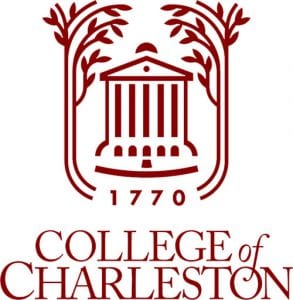College of Charleston part of educational coalition aiming to change S.C. healthcare using AI
May 9, 2023The College of Charleston is part of a coalition of South Carolina researchers working to modernize healthcare diagnostics and treatment in South Carolina with the use of artificial intelligence.
The National Science Foundation has announced a $20 million, five-year investment in a multi-institutional project called Artificial Intelligence-Enabled Devices for the Advancement of Personalized and Transformative Health Care in South Carolina or ADAPT-SC. As part of the initiative, the College of Charleston will receive $1.353 million over 5 years. Funding comes from the National Science Foundation’s Established Program to Stimulate Competitive Research (NSF EPSCoR) Research Infrastructure Improvement Track-1 Award, which bolsters the foundation’s overall goal to improve the research and development competitiveness of researchers and institutions within EPSCoR jurisdictions.
The project has three primary goals:
- Build research capacity in AI-enabled biomedical devices in strategically identified areas to transform South Carolina’s health care system, particularly in underserved areas.
- Build a diverse talent pool in the field of biomedical AI through innovations in education and workforce development from K-12 through all levels of higher education.
- Foster interdisciplinary collaborations and academic–industrial partnerships by establishing research, education and technology-transfer integrated programs.
“These funds will support the research of two outstanding faculty at the College – Joe Carson (physics) and Navid Hashemi (computer science),” says Christopher Korey, associate provost for student success.
The two professors will work on highly collaborative research projects with other researchers at the Medical University of South Carolina, Clemson University and the University of South Carolina and create a new Teaching/Research Lab for AI-Based Biomedical Devices and Imaging that will support student coursework and student research in this field. The funds will also be used to support a new faculty hire in computer or electrical engineering and provide summer research stipends to 40 undergraduate students over the next 5 years.
“Given its focus on undergraduate education and experiential learning, the College will help lead the education and workforce development efforts of the state network,” says Korey.
The ADAPT-SC research collaborators include Clemson University, the University of South Carolina, the Medical University of South Carolina, Benedict College, Claflin University, South Carolina State University, Francis Marion University, The Citadel, Winthrop University and Tri-County Technical College. To advance translational research, ADAPT-SC will also work with SC Bio, a statewide economic development organization and life-sciences industry association with nearly 200 members.















